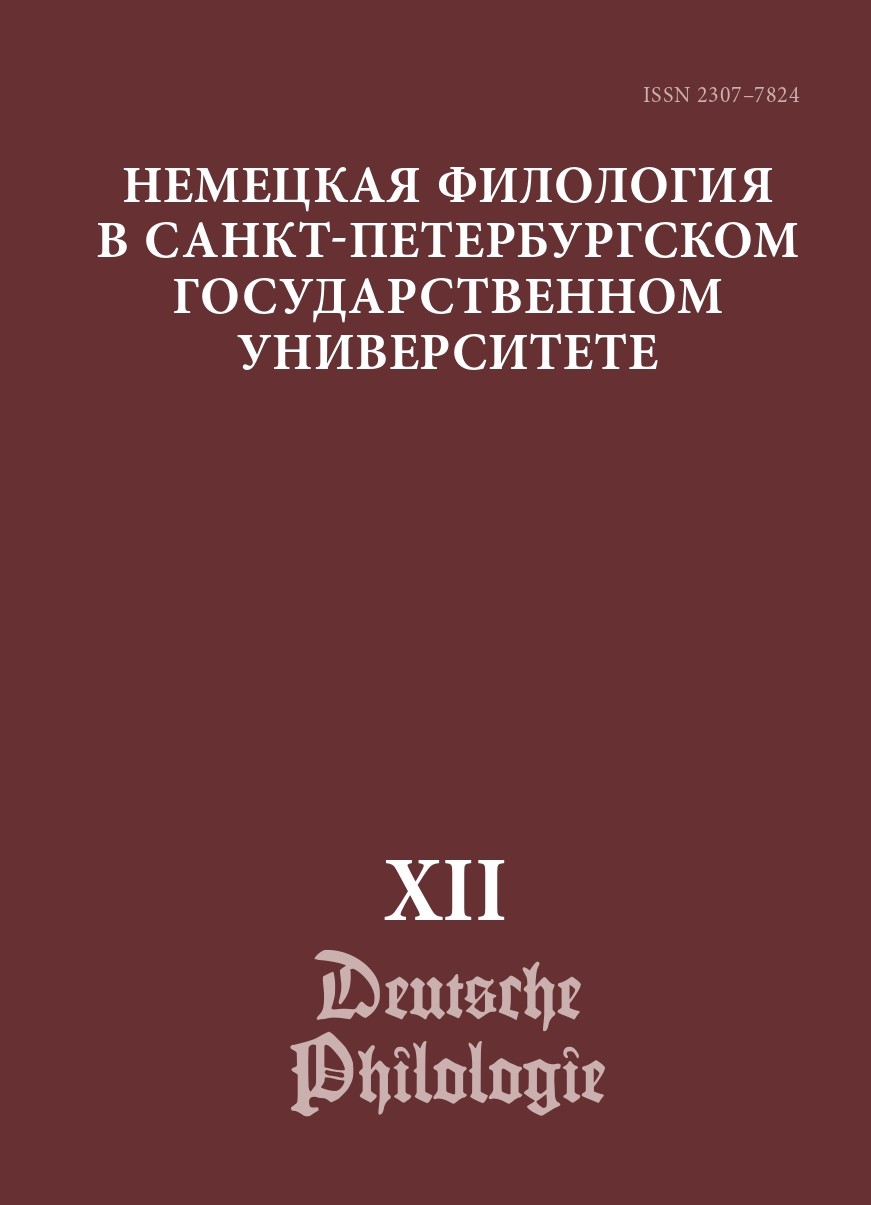GERMAN-BASED INTERNET LINGUISTICS: HISTORY REVIEW AND MODERN TRENDS
DOI:
https://doi.org/10.21638/spbu33.2022.113Abstract
This article focuses on a new linguistic discipline called Internet linguistics, reveals historical aspects of its formation, and summarizes research strategies in modern linguistic studies in German-speaking countries. The article provides a brief overview of the main studies on Internet-linguistics by German-speaking researchers from the late 1980s to the present. Research analysis evaluates important terminological aspects: debates around key concepts and objects of study. With the invention of the Internet and rapid progress made in digital media, forms of social interaction were significantly impacted, along with related tendencies of development of the modern German language. The analysis highlights a contribution of German-speaking academic researchers to the debate on the possibility of distinguishing a special language of the Internet and language criticism on the Internet. The article presents the studies addressing the topic focus on linguistic innovations on the Internet and the pragmatic potential of the linguistic phenomena typical for the modern German language. The article briefly describes the research approaches to the problems of new media and new forms of communication in the digital world (SMS text messages, chat rooms, blogs, tweets, etc.), multimodal Internet phenomena (emoji, memes), standards and rules of online behavior (Netiquette). Contemporary studies forced a new viewpoint on some concepts from related disciplines such as “code-switching”, conceptual oralness and conceptual writing, proximity language and distance language. The necessary part of the article deals with the discursive and applied aspects of the Internet linguistics, such as creation of the Internet corpora, launching international projects, etc.
Downloads
Downloads
Published
How to Cite
Issue
Section
License
Условия передачи авторских прав на статьи и рецензии, опубликованные в ежегодном периодическом издании «Немецкая филология» регулируются условиями Лицензионного Договора автора с Санкт-Петербургским государственным университетом. В соответствии с Лицензионным Договором опубликованные материалы находятся в открытом доступе, а авторам бесплатно предоставляется неограниченные возможности их распространения и самостоятельного архивирования.




